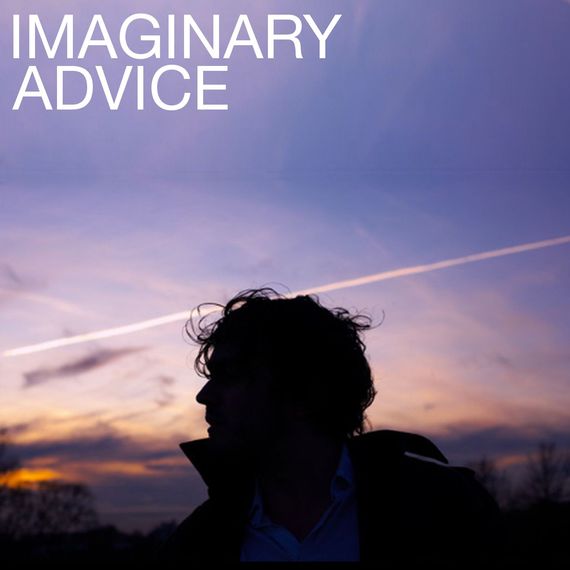
I’m having trouble calibrating the emotional pitch of these newsletters. On the one hand, as a very Plugged-in Human, I feel a strong urge to consume and recommend things that reflect the mood of the moment, and, frankly, that mood has been pretty dicey for what has been a very, very long moment. On the other hand, I also understand that not everybody wants to stay close to the everyday all the time; escapism, in some form or another, is often not just desirable but necessary. Which is why, in the aggregate, I vibe with arguments around bringing back professional sports to provide the masses with potentially healing distraction. (To a point. Shout-out to the Milwaukee Bucks.)
Part of that trouble, I think, has to do with the fact that I personally don’t quite know how to feel about things anymore. Should I contemplate the burning West Coast, or should I check up on reviews of Tenet? So consider this an invitation to send me recommendations on how to feel about things. Call it a trade: I give you pods, you give me feelings. Oh, and give me your podcast recommendations too. Extra sprinkles if it’s not your own.
Find me on Twitter or hit me over email: nicholas.quah@vulture.com.
Let’s get to this week’s picks.
Imaginary Advice: “The Golden House”
Apple Podcasts | Spotify | Stitcher | Website
Stories tend to have a lot in common with games. They hinge on narrative mechanisms, core ideas or devices that give the story its shape, logic, momentum, and purpose. The gamelike nature of storytelling comes across frequently in Imaginary Advice, Ross Sutherland’s spectacularly strange podcast that doubles as his laboratory for experiments in fiction, and in “The Golden House,” the latest miniseries to roll out beneath the Imaginary Advice banner, Sutherland takes that connection and literalizes that connection.
The premise of the new miniseries should be intriguing to anybody who likes Black Mirror and corporate-conspiracy fiction. Within the world of the story, “The Golden House” is a branded podcast produced by a shadowy technology company meant to reintroduce the firm after an extended period of staying out of the public spotlight. The podcast has all the hallmarks of sleek corporate marketing: soothing vibes, vaguely futuristic aesthetics, comforting language. The company is British, and so too is the narrator, whose accent adds to the entire performance of soft professionalism. Except, of course, there’s more lurking beneath the surface. The narrator constantly makes asides and references to things and edits that may or may not happen to the show you’re hearing. The tone drifts back and forth between public-relations nothing-speak and something far more sinister; the narrator’s insistence to let the performances slip draws attention to the world beyond the microphone. It’s the slightest approximation of a hostage video.
On the pop-up website created for the miniseries, “The Golden House” is described as an “interactive podcast drama,” and the liner notes tell us that the narrator is hiding codes and secrets throughout the episodes. I haven’t sat down to figure out the whole thing yet, but I’m told that they will lead to far corners of the internet, where a bigger mystery can be found.
I’m a sucker for meta-textual puzzles like this, which some call Alternate Reality Games. Such games, distinct for their presentational threading together of fictional spaces and the real world, have a unique capacity for scratching a certain type of itch in a certain type of brain, tending to attract the kind of people naturally drawn to metafiction, the surreal pleasures of fourth-wall-breaking, and the quiet hope of discovering a world bigger than our own. Of course, this type of mind-set — and this type of game — carries eerie weight these days, given the increasingly harrowing prominence and aggression of the conspiratorially inclined in the public sphere. Still, that shouldn’t be held against Sutherland and “The Golden House.” We’re only two episodes into this miniseries, and I’m interested to see where this yellow-brick road goes.
Flash Forward: “It’s the End of the World As We Know It”
Apple Podcasts | Spotify | Stitcher | Website
A pandemic continues to smother the world, and the American West is burning so hard and so unnaturally that the sun here has been blood red for days. The power to do anything at all seems fully concentrated in the hands of a small, furiously uninterested few. So do excuse me for thinking, perhaps a little magically, about the end of the universe.
Flash Forward is a curious show. Structured somewhere between a zine and a classic documentary pod, between something retro and something fully ahead of its time, this futurist podcast by Rose Eveleth poses smart questions about the future in a whole bunch of interesting ways. Methodologically, she likes mixing fiction and nonfiction, big ideas with human feeling, deep despair with little embers of hope. All of which is to say it can be a hard show to describe in a pinch, but that complicated nature is part of its virtues.
In this episode, which dropped last month, Eveleth talks to the astrophysicist Katie Mack, who recently published a book called The End of Everything: (Astrophysically Speaking). The book deals with — you guessed it — the end of the universe, specifically presenting a few different ways of how that might play out. It’s one of those wonky lines of questioning that will be intellectually intriguing to some but devastatingly depressing to others (like myself). Eveleth, thankfully, appears to be part of the latter camp and carries the inquiry to its next logical question: How should we feel about the prospect of the end of everything that’s ever been? To answer that question, Eveleth looks, helpfully, to a clinical psychologist, and also, in an intriguing Douglas Adams–esque turn, to a party planner for advice on how to throw the last party in the universe.
Meanwhile …
• Don’t miss The Daily’s remarkable two-parter from last week on the killing of Breonna Taylor. It was reported and led by Rukmini Callimachi, who was last spotted on the podcast charts as the host of Caliphate.
• We’re not exactly short on Trump-related media, be it books or television shows or podcasts or whatever, but we’re short on meaningful ones. A new investigative series from the Center for Public Integrity, called The Heist, seems like it might be a decent addition to the latter. The podcast debuts tomorrow, and it’ll run for five episodes.
• After a brief hiatus, Politically Re-Active With W. Kamau Bell & Hari Kondabolu is returning for a third season, starting next month.
• The first season of Laura Krantz’s Wild Thing was a fun Nat Geo–ish jaunt that sought to take the long-running question of Sasquatch/Bigfoot seriously. The show returns for a second season this week, in which Krantz turns the frame upward into the great unknown of space aliens.
• We’ve updated our list of the Best Podcasts of the Year (So Far), now with extra white parents.
Reader Pick: Sandip Roy’s Dispatches From Kolkata
A recurring short audio feature from San Francisco’s KALW.
“I love this short podcast by Sandip Roy, an award-winning author. It’s ostensibly about life in Kolkata, India, but it’s so much more — and it’s well produced with beautiful music. It’s a wonderfully diverse set of stories about life in India, which helps me find perspective in my own life. Some stories are about big issues involving human rights, political, and cultural history; others are more individualized, such as stories about the mango trees and traveling vendors in his neighborhood. Either way, the voices, street sounds, and music that are background to the stories bring me back to India. I only wish they were longer.”
And that’s a wrap for 1.5x Speed! Hope you enjoyed it. We’re back next week, but in the meantime, send podcast recommendations, feedback, or just say hello at nicholas.quah@vulture.com.








